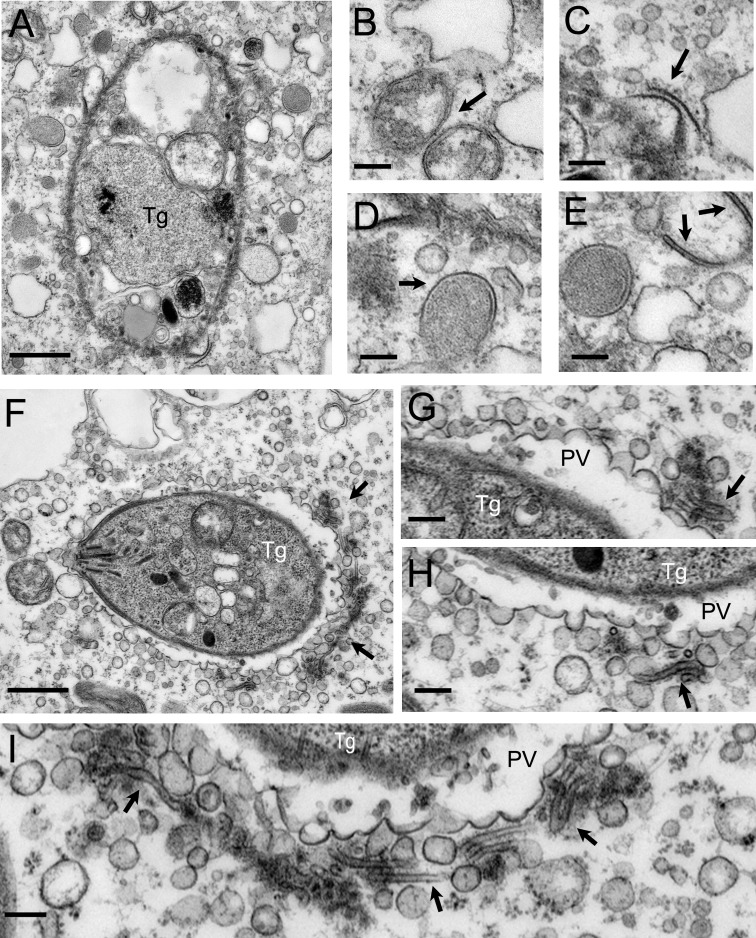Figure 5.
Electron Microscopic Analysis of Damage to the Parasitophorous Vacuole in IFN-γ/LPS-Activated Control Macrophages
(A) Clearance of T. gondii infection by control macrophages treated with IFN-γ/LPS is associated with a process of vacuolar membrane damage including vesiculation and blebbing 5 hr after infection. Findings here were specific for control macrophages and were not observed in Atg5-deficient macrophages. (A) shows a heavily damaged parasite within the cytosol following dissolution of the parasitophorous vacuole membrane. The parasite plasma membrane shows evidence of damage. Scale bar = 0.5 μm.
(B–E) Examples of double-membrane-bound compartments forming in the vicinity of the degraded parasite. Scale bars = 0.1 μm.
(F) Parasite residing within a parasitophorous vacuole that is undergoing extensive membrane blebbing and vesiculation. A prominent cluster of membrane vesicles and flattened cisternae are found at the posterior end (arrows). Scale bar = 0.5 μm.
(G–I) Enlarged views of the membrane vesicles showing flattened cisternae (arrows). Scale bars = 0.1 μm.

